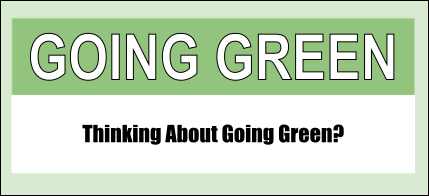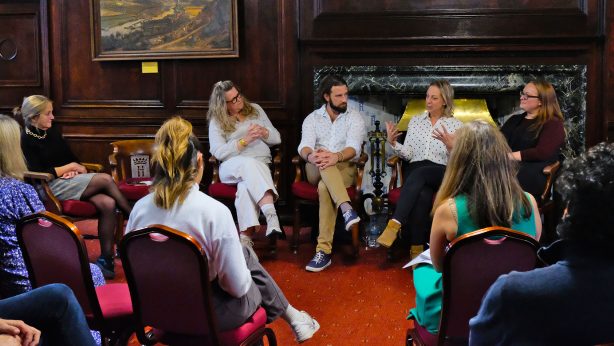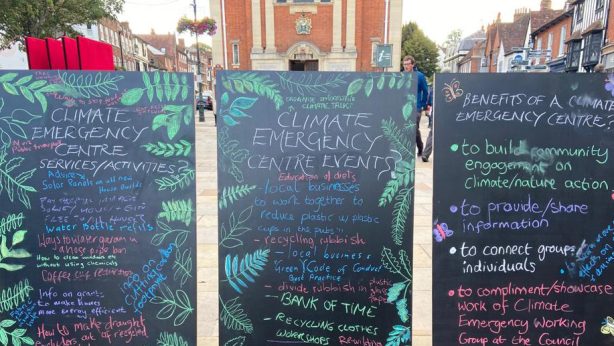GOING GREEN – February 2024

The world is so troubled at the moment that I thought I would share some good things to focus on. Recently Greener Henley was asked if we could help Sacred Heart Primary School run a lunchtime Nature Club. Our first meeting was held on the 22nd January with a club full of enthusiastic nature seekers. On this occasion we carried out a Hidden Nature Challenge in the School grounds – you might like to have a go at a couple of the challenges when you are outdoors next.
Look out for a plant growing in an unexpected place – I love finding those tiny ferns growing in walls but the children spotted a groundsel growing on top of a high brick wall. Even more exciting for them was finding a verbena growing out of a welly – I wonder how that got there!
Another challenge was to look for a pattern in nature- that takes some very close scavenging as does finding the smallest living thing. Next time we are going to ‘Meet a tree’ which involves identifying and mapping the different trees in the grounds.
Both of these exercises come from something called the National Education Nature Park which is a scheme devised to help schools identify and map the nature in their grounds. The results of schools’ nature surveys can be added electronically to a national map to create a picture of the state of our natural world and see where there are gaps in species to be filled.
This is part of the drive to help all schools to develop their own climate and nature action plans. Through the Schools Action group, Greener Henley are supporting local schools with this. 17 schools have signed up so far, if you know a school in the area that hasn’t done so yet but is interested please get them to contact us through our website. https://www.greenerhenley.org
We have had our first planning meeting for Henley’s Great Big Green Week 2024 (8th – 16th June). It’s great to be in a room full of enthusiastic folk throwing out exciting ideas. Last year was a tremendous week of celebrating what our community is doing to tackle climate change and protect nature. We had almost something for everyone – allotment tours to zoology, alternative gardeners to slow fashion, poetry and discussion. Throughout the country people gardened, walked, cycled, danced, acted, read, shared meals together. If your interest group hasn’t joined in yet, organise something and we’ll help you with the publicity.
I know there are a lot of book groups in the town. Wouldn’t it be great to have a huge Henley conversation about the same book – we’d be pleased to recommend a good book to read over Great Big Green Week – there are so many brilliantly written informative and enjoyable reads.
I am learning so much from my current reading matter. For instance I didn’t realise that a third of vertebrates and about two-thirds of invertebrates are nocturnal. So while we sleep most natural activity happen in the form of mating, hunting, decomposing and pollinating. We generally think of daytime pollinators but nocturnal moths visit more kinds of flowers than bees do.
And who gives much thought to the decomposers, the likes of dung beetles who use the stars to navigate? Without our decomposers we would be wading through tons of decaying matter. Not a nice thought! According to Johan Eklof, bat scientist and author of The Darkness Manifesto, a bat can eat three thousand insects in a night, so those of us who are eaten alive by gnats on summer evenings should welcome and encourage bats.
Bats have proved to be really important in malarial areas as well as in rice-producing countries whose crops are threatened by disease and infestations. They are a most effective natural pest controller. Currently French wine growers are encouraging colonies of bats to settle and fly over their vineyards, perhaps that is something our local vineyards might want to consider.
It’s good to hear that a couple of other green groups in the area have started up – well done Greener Frieth and Sonning Common’s Eco So Co! Also the Henley Plastic Reduction are being revived. Let’s see if we can do something about all the tons of plastic that ends up in landfill clogging up our waterways. There are loads of alternatives to single use plastic – we just have to use our voices and our wallets.



